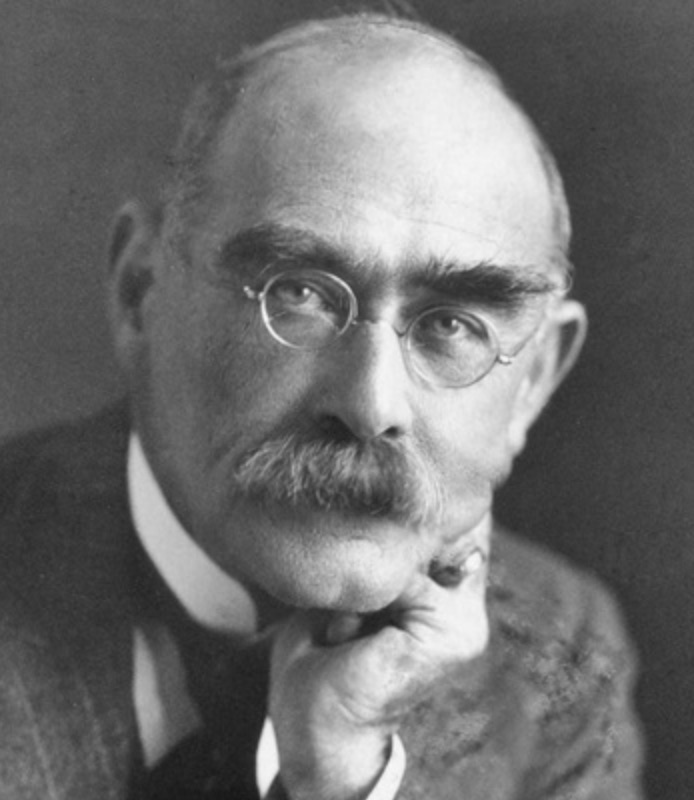
Rudyard Kipling was born on December 30, 1865, in Bombay, British India (now Mumbai, India). He was named after Rudyard Lake in Staffordshire, England, where his parents first met. Kipling spent the first six years of his life in India, which had a profound influence on his later works. His parents, John Lockwood Kipling and Alice Macdonald Kipling, were both involved in the arts. Rudyard was sent to England for his education at the age of six. He attended the United Services College in Westward Ho!, Devon.
Kipling returned to India in 1882 and worked as a journalist for local newspapers. His experiences in India provided material for many of his later stories. He gained widespread recognition with his poetry and short stories. “Plain Tales from the Hills” (1888) was his first collection of short stories. “The Jungle Book” (1894) and its sequel, “The Second Jungle Book” (1895), are among his most famous works, featuring Mowgli, a young boy raised by wolves in the Indian jungle.
In 1892, Kipling married Caroline Starr Balestier, an American. They settled in Vermont, USA, where they had two daughters and a son. In 1907, Rudyard Kipling became the first English-language writer to receive the Nobel Prize in Literature. The Nobel Committee noted his ability to create narrative art and uphold the great traditions of the English language.
Kipling continued to write prolifically throughout his life, producing novels, short stories, and poetry. His later works include “Kim” (1901) and “Puck of Pook’s Hill” (1906). Rudyard Kipling died on January 18, 1936, in London, England and was buried in Westminster Abbey.
Rudyard Kipling’s literary legacy endures, with his stories and poems continuing to be popular and adapted into various forms of media. However, his imperialistic views and writings have also been criticized for their endorsement of British colonialism.
In spite of these criticisms, I wish to share with you a poem that you may have studied in high school, composed by Kipling. A copy is hanging on my office wall–a gift from my daughter.
IF
If you can keep your head when all about you Are losing theirs and blaming it on you,
If you can trust yourself when all men doubt you, But make allowance for their doubting too;
If you can wait and not be tired by waiting, Or being lied about, don’t deal in lies,
Or being hated, don’t give way to hating,
And yet don’t look too good, nor talk too wise:
If you can dream – and not make dreams your master; If you can think – and not make thoughts your aim;
If you can meet with Triumph and Disaster And treat those two impostors just the same; If you can bear to hear the truth you’ve spoken Twisted by knaves to make a trap for fools,
Or watch the things you gave your life to, broken, And stoop and build ’em up with worn-out tools:
If you can make one heap of all your winnings And risk it on one turn of pitch-and-toss,
And lose, and start again at your beginnings And never breathe a word about your loss;
If you can force your heart and nerve and sinew To serve your turn long after they are gone,
And so hold on when there is nothing in you Except the Will which says to them: ‘Hold on!’
If you can talk with crowds and keep your virtue, Or walk with Kings – nor lose the common touch, If neither foes nor loving friends can hurt you,
If all men count with you, but none too much; If you can fill the unforgiving minute
With sixty seconds’ worth of distance run, Yours is the Earth and everything that’s in it, And – which is more – you’ll be a Man, my son!
This poem was published in 1908, and was purportedly addressed to Kipling’s only son, John, who was killed in action, 7 years later, on September 1915, at age 18, in the Battle of Loos in World War I.
